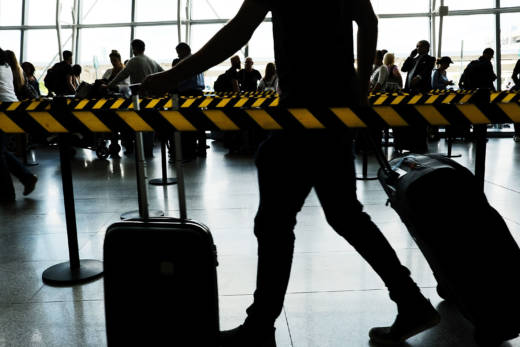President Trump is facing a decision on whether to extend the ban on travelers from six majority-Muslim nations from entering the U.S. Acting Homeland Security Secretary Elaine Duke this week sent to the White House her recommendations for "tough and tailored" security vetting, to replace the current ban, which expires Sunday.
Those recommendations included travel restrictions and enhanced screening, DHS counselor Miles Taylor told reporters Friday afternoon. However, officials would not say which countries' travelers would face the restrictions, nor would they say what the specific restrictions would be — indicating the final decision would be the president's.
"We've got to do everything possible to keep nefarious actors out" of the U.S., Taylor said. Foreign nations were given a list of minimum requirements for entry into the U.S., similar to what the Department of Homeland Security now requires of persons entering the country from visa waiver nations, including biometric passport data and background checks.
Taylor said some nations refused to comply with the requirements, but he would not name those countries.
Earlier Friday, the Wall Street Journal reported DHS "originally flagged 17 nations as failing to comply with standards." Faced with the prospect of their citizens being included in the travel ban, the Journal said about half of those nations made changes "that brought them into compliance." The Journal report was quickly followed Friday by similar reports from the New York Times, CNN and NBC News.

9(MDAxOTAwOTE4MDEyMTkxMDAzNjczZDljZA004))